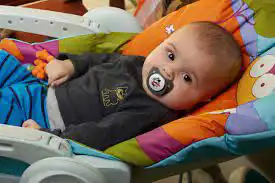How often do you hear yourself asking your child, "Who did you play with today?" or "Did you make any new friends at preschool today?" Of course, you are eager to know if your child is socializing well at school. As parents, we get excited to hear about the friends our children have made and the experiences they've shared with them.
It is a cherished moment when your child can name a few friends with whom he shared his day at preschool. Better still, when he announces that he has made a friend who saves a spot for him at story time, every day. Isn't that the cutest thing? But does it worry you if your child cannot form such bonds at preschool? It shouldn't, because every child is different and develops at their own pace.
Let's understand this: not every child who starts preschool will quickly develop tight bonds. Some children are introverts - they prefer solitary play and may continue to do so until kindergarten. However, this doesn’t mean that they are at a disadvantage.

On the other hand, there are children who are more sociable; they start out with parallel play - where they do their own thing while in the company of their peers - and finally move to paired-off play, where they begin to do activities together, usually around the age of 3. Both are equally normal.
There isn't a 'right' way for kids to play or socialize at any age, but encouraging them to make friends at their own pace holds the key to healthy social development. Here are a few tips on how you can support this.
One of the best ways to initiate social contact for your child is to schedule one-on-one playtime. If your child is shy in the larger group setting of preschool, having a playdate at your house with one classmate might be a good start. The familiar surroundings of home can make your child feel comfortable and help build connections.
Experts suggest teaching your child conversation starters. Does your child need help figuring out how to approach potential friends? Help him spot opportunities within conversations. 'Adam seems to love playing with Legos. How about asking him to join you in building a castle?'
Sometimes, a toy from home that your child can 'show and share' with his peers may work as a great ice-breaker. After all, shared interests form the base of many great friendships.
Building friendships is not just about approaching others; it also involves being a good friend. If your child has a tendency to dominate play or is often whiny, they might need guidance on how to behave in a group setting.
Coaching your child on taking turns (which needs practice) and learning to let others pick activities sometimes can be beneficial. It's crucial to teach them the importance of being respectful and considerate towards others' choices.
Asking the preschool teacher for assistance can also be helpful. Since the teacher is always around, they can facilitate the formation of friendships by pairing your child with potential buddies in small group activities.
It’s okay if your child has preferences. They may connect with certain classmates while remaining indifferent to others, which is normal and also true for adults. You probably don't befriend everyone you come across, so why should they?
So, your child is not a part of the 'popular group'? If your child feels sad about this, let them know their feelings are valid, but also assure them it is not the end of the world. A little sympathy, a hug, and engaging them in a different activity should make them feel better.
Above all else, always keep in mind that every child is unique and develops at their own pace. It is alright if your child prefers playing alone, and it’s equally okay if your child enjoys being around others.
Before you know it, your child, the little introvert, could well become a social butterfly, busy engaging with friends, leaving you trying to fit into his schedule! Always encourage their growth, but at their own pace.